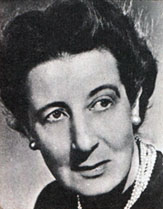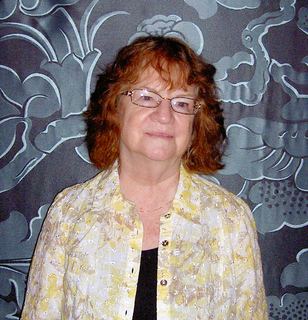A Quote by Damon Lindelof
I've always been into having stories told to me. I was a voracious reader, my father was also a teller of tales; and the kind of Baron Munchausen proxy of a tall tale was much more interesting than a true tale.
Related Quotes
The fairy tale, which to this day is the first tutor of children because it was once the first tutor of mankind, secretly lives on in the story. The first true storyteller is, and will continue to be, the teller of fairy tales. Whenever good counsel was at a premium, the fairy tale had it, and where the need was greatest, its aid was nearest. This need was created by myth. The fairy tale tells us of the earliest arrangements that mankind made to shake off the nightmare which myth had placed upon its chest.
Nothing ever begins. There is no first moment; no single word or place from which this or any story springs. The threads can always be traced back to some earlier tale, and the tales that preceded that; though as the narrator's voice recedes the connections will seem to grow more tenuous, for each age will want the tale told as if it were of its own making.
Stories are thick with meanings. You can fall in love with a story for what you think it says, but you can't know for certain where it will lead your listeners. If you're telling a tale to teach children to be generous, they may fix instead on the part where your hero hides in an olive jar, then spend the whole next day fighting about who gets to try it first. People take what they need from the stories they hear. The tale is often wiser than the teller.
You've heard tales of beauty and the beast. How a fair maid falls in love with a monster and sees the beauty of his soul beneath the hideous visage. But you've never heard the tale of the handsome man falling for the monstrous woman and finding joy in her love, because it doesn't happen, not even in a story-teller's tale.
A wonder tale can be truer than true," I said. I had learned (...) that the deepest kind of truth can be found in the strangest and wildest of stories. One may not meet a fire-breathing dragon on the way to the well. One may not encounter an army of toothed snakes in the woodshed. That does not make the wisdom in those tales any less real.
The artist usually sets out -- or used to -- to point a moral and adorn a tale. The tale, however, points the other way, as a rule. Two blankly opposing morals, the artist's and the tale's. Never trust the artist. Trust the tale. The proper functions of a critic is to save the tale from the artist who created it.
It's an odd thing but when you tell someone the true facts of a mythical tale they are indignant not with the teller but with you. They don't want to have their ideas upset. It rouses some vague uneasiness in them, I think, and they resent it. So they reject it and refuse to think about it. If they were merely indifferent it would be natural and understandable. But it is much stronger than that, much more positive. They are annoyed. Very odd, isn't it.
From a tale one expects a bit of wildness, of exaggeration and dramatic effect. The tale has no inherent concern with decorum, balance or harmony. ... A tale may not display a great deal of structural, psychological, or narrative sophistication, though it might possess all three, but it seldom takes its eye off its primary goal, the creation of a particular emotional state in its reader. Depending on the tale, that state could be wonder, amazement, shock, terror, anger, anxiety, melancholia, or the momentary frisson of horror.
Very often, I confess, the teller of dreams bores me. His dream could perhaps interest me if it were frankly worked on. But to hear a glorious tale of his insanity! I have not yet clarified, psychoanalytically, this boredom during the recital of other people's dreams. Perhaps I have retained the stiffness of a rationalist. I do not follow the tale of justified incoherence docilely. I always suspect that part of the stupidities being recounted are invented.
At its best, fantasy rewards the reader with a sense of wonder about what lies within the heart of the commonplace world. The greatest tales are told over and over, in many ways, through centuries. Fantasy changes with the changing times, and yet it is still the oldest kind of tale in the world, for it began once upon a time, and we haven't heard the end of it yet.




































